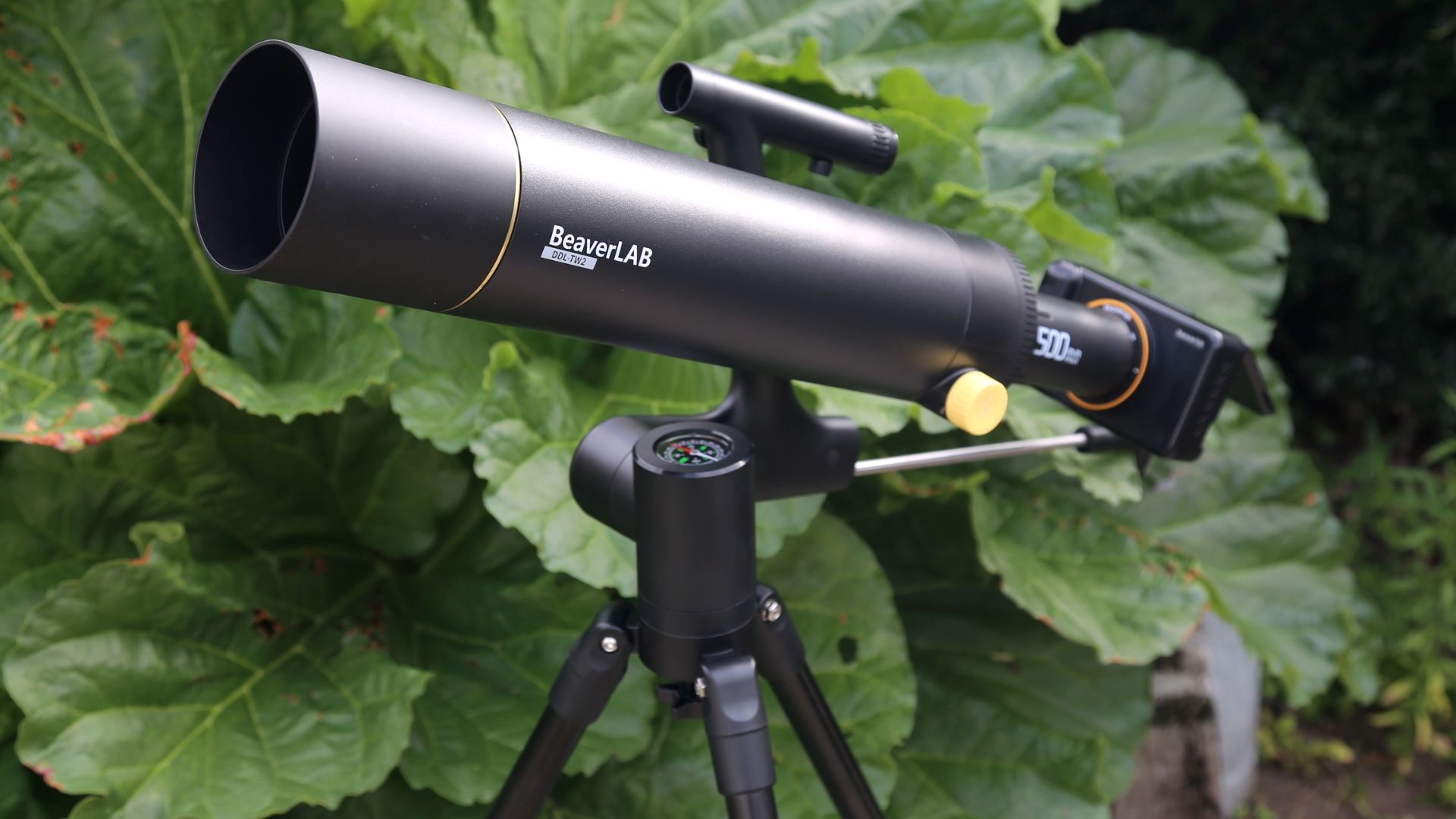

Gaze into the great beyond from your own backyard with the best telescopes for stargazing, where distant galaxies become backyard companions, and the moon feels like a mere stone's throw away. But beware, fellow cosmic adventurer, for this journey into the celestial realm can be as treacherous as it is exhilarating.
If you dream of probing the deepest corners of space, you'll need a high-tech marvel capable of guiding you to distant celestial wonders. Prepare to delve deep into your pockets, for the most advanced telescopes command a hefty price tag. Yet fear not, for with great investment comes great flexibility and boundless cosmic discoveries.
Remember, fellow stargazer, to choose the telescope that fits your budget like a snug astronaut suit. Skimping on expenses in this celestial pursuit could leave you adrift in a sea of cosmic disappointment. And if telescopes don't quite align with your celestial ambitions, fear not! Today's best binoculars offer a stellar alternative (pun very much intended). Join us as we navigate the cosmos, one star at a time.
T3's top pick of best telescope currently is SkyWatcher's Explorer 130M, a motorised option accessible for beginners but with plenty of room to grow. Our second pick, the Celestron StarSense Explorer 8", is probably even better for newbie stargazers. If you're looking for something chic, Unistellar's premium Odyssey Pro is your best option.
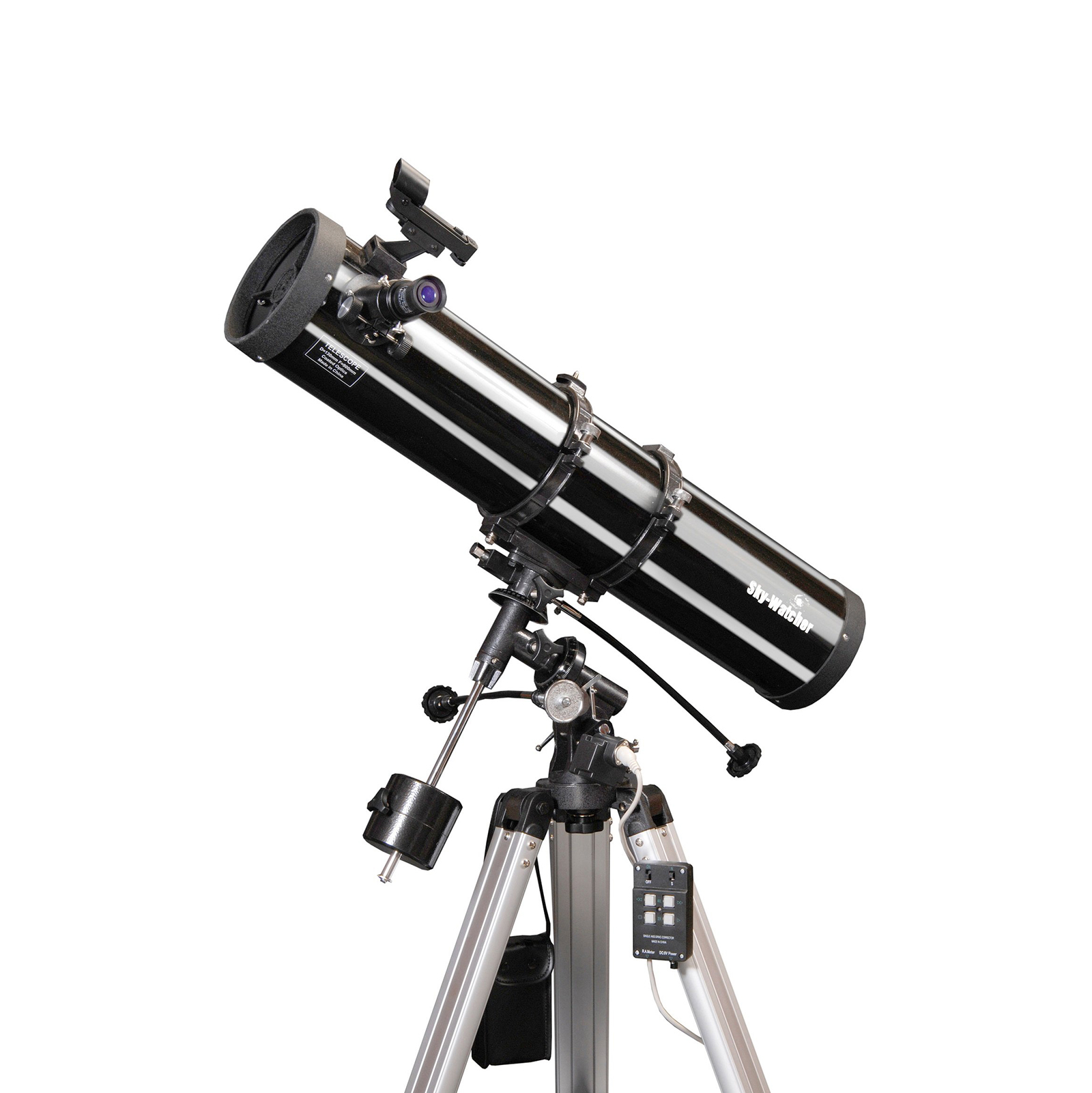
This motorised option is accessible for beginners but with plenty of room to grow. There's a 900mm focal length, f/6.92 aperture and two eyepieces (10mm and 25mm), which will enable you to check out neighbouring planets or gaze into deep space. People managed to access impressively sharp views of the craters on the Moon's surface, alongside Jupiter's moons, Saturn's rings and the Andromeda galaxy.
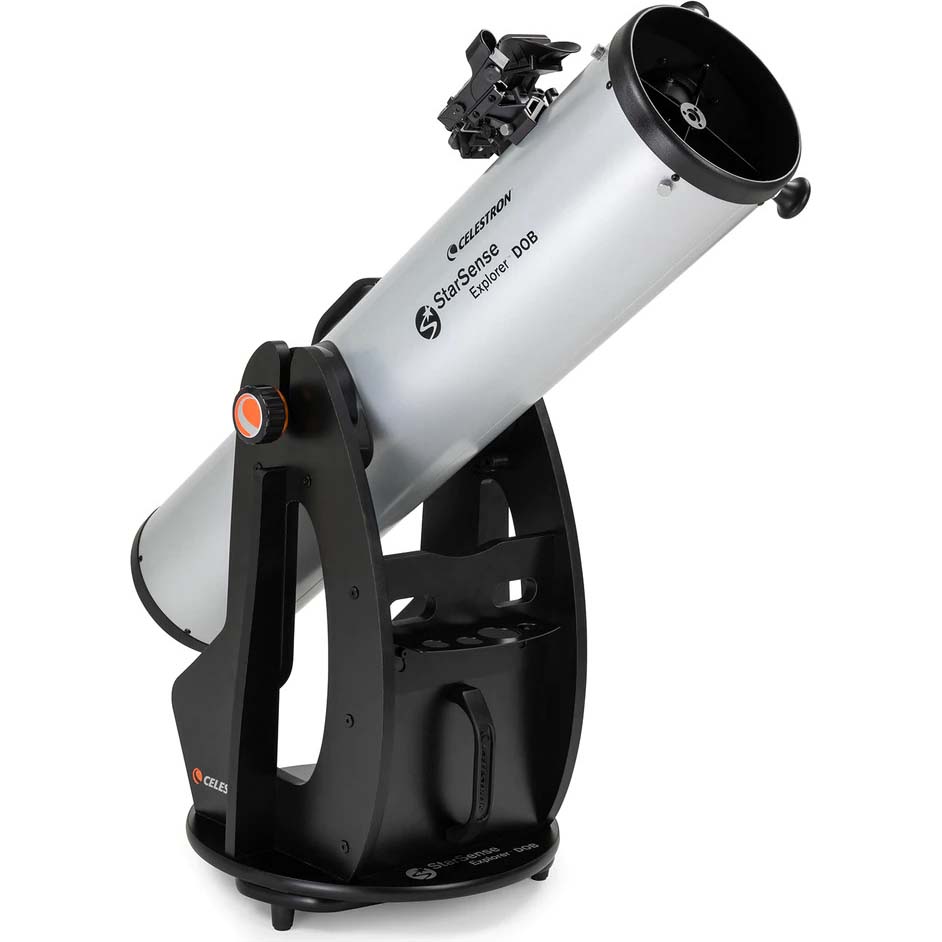
This telescope's Dobsonian design delivers a lot of light in a reasonably compact package. Celestron's fantastic StarSense app brings your phone into play and makes it astonishingly easy for even a fresh-faced newbie to find celestial bodies. It's not exactly cheap, but you get stacks of performance for your money, and the views you'll get from this telescope are incredible.
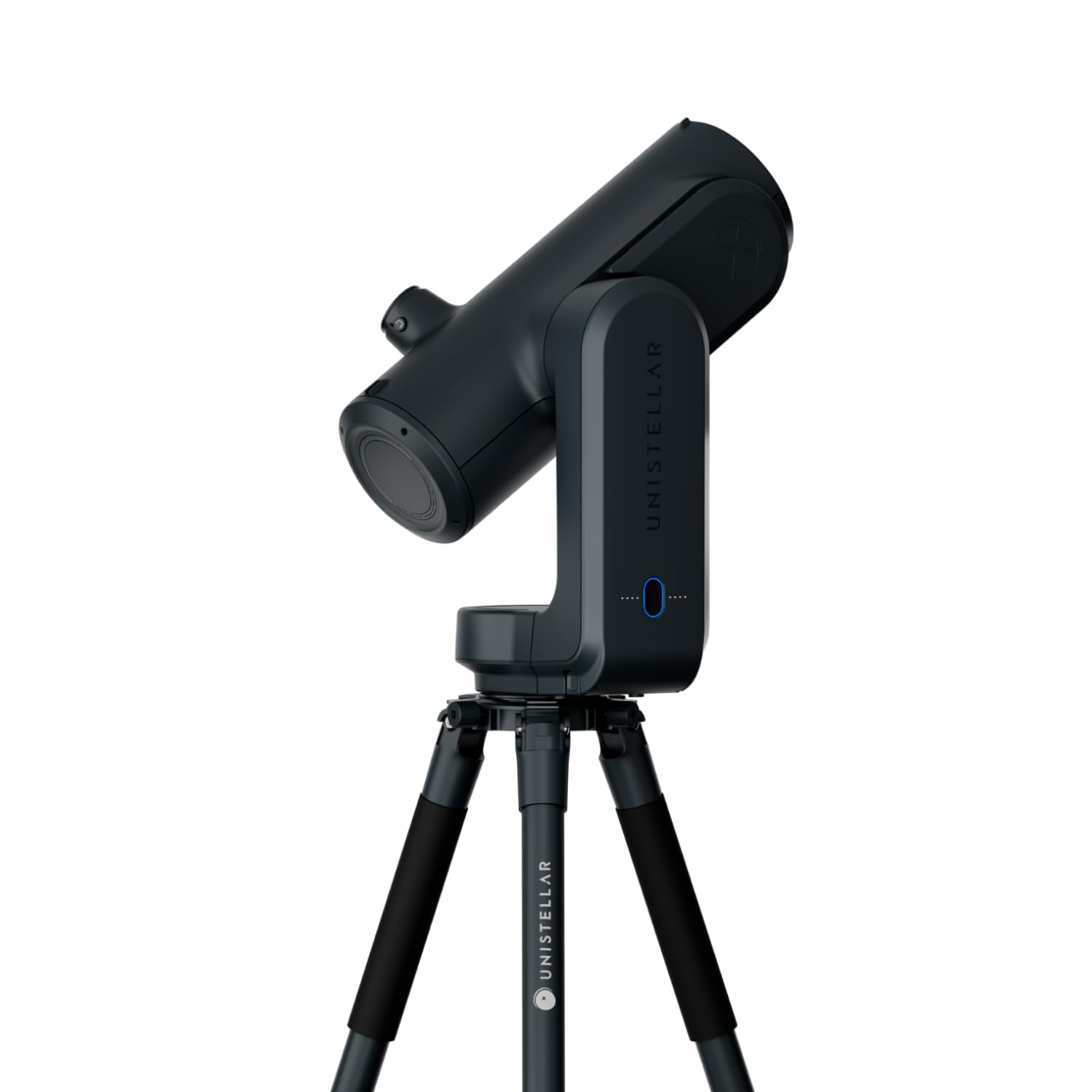
The iconic Celestron NexStar 6SE telescope is perfect for amateur astronomers looking for higher magnifications and sharper, more refined views of both the deep sky and objects in our own solar system. Its 6-inch aperture gives it high usable magnification on planets and the Moon and on distant star clusters, galaxies and nebulae.
Best telescopes for stargazing to buy right now
Best overall
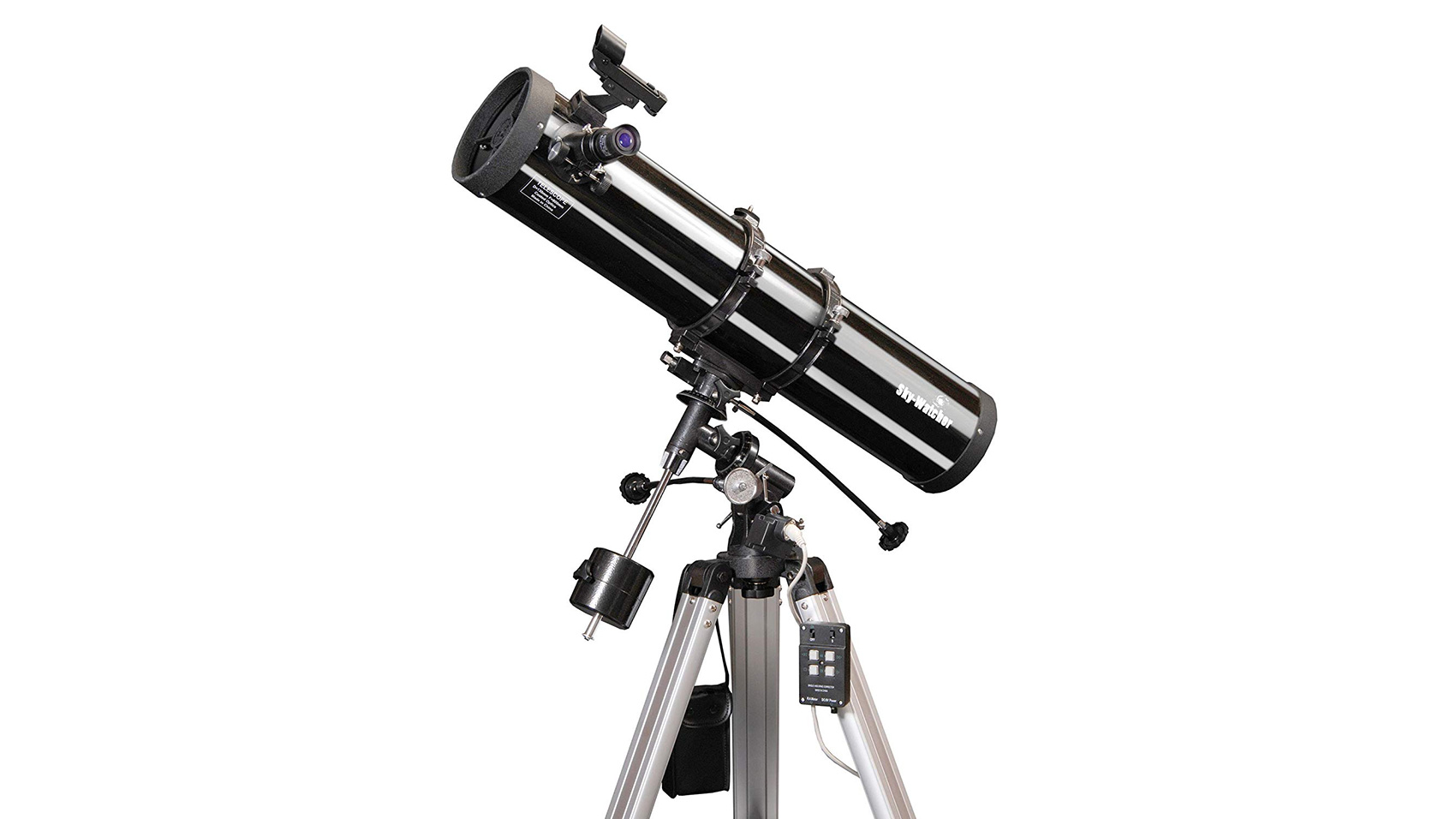

1. SkyWatcher Explorer 130M
Specifications
Reasons to buy
Reasons to avoid
The SkyWatcher Explorer 130M Motorised Newtonian Reflector Telescope is a motorised option, accessible for beginners but with plenty of room to grow, and delivers a lot for its reasonable price tag.
There's a 900mm focal length, f/6.92 aperture and two eyepieces (10mm and 25mm), which will enable you to check out neighbouring planets or gaze into deep space. Customers have managed to access impressively sharp views of the craters on the Moon's surface, alongside Jupiter's moons, Saturn's rings and the Andromeda galaxy.
While this isn't the lightest or most compact telescope, the fully adjustable aluminium tripod is very stable, and general consensus is that setup is pretty straightforward, with two complete novices managing it in around an hour. You should expect a build quality that's great for the price, although understandably not as rugged as more expensive options.
A multi-speed handset enables you to control the 360° slow-motion tracking gears. SkyWatcher claims the flexibility of this telescope's dual metal setting circles allows for the tracking of planets in the night sky by their RA (Right Ascension) and DEC (declination) coordinates to give their location in relation to fixed stars (although the jury's out on if this actually works – one reviewer commented that these dials were "largely decorative"). A separate latitude adjustment aids polar alignment – although, again, some report difficulty in adjusting this.
Despite these few niggles, the SkyWatcher Explorer 130M Motorised Newtonian Reflector Telescope comes extremely well reviewed, with consistently high scores and customers impressed with what's delivered for the reasonable price tag. An excellent option for new stargazers and onwards, this one should whet your appetite for further investigation of the Moon – and beyond!
Not sold? Check out some more mid-range all-rounders in our Celestron Inspire 100AZ refractor vs Meade Polaris 114mm reflector telescope face-off.
Best beginner
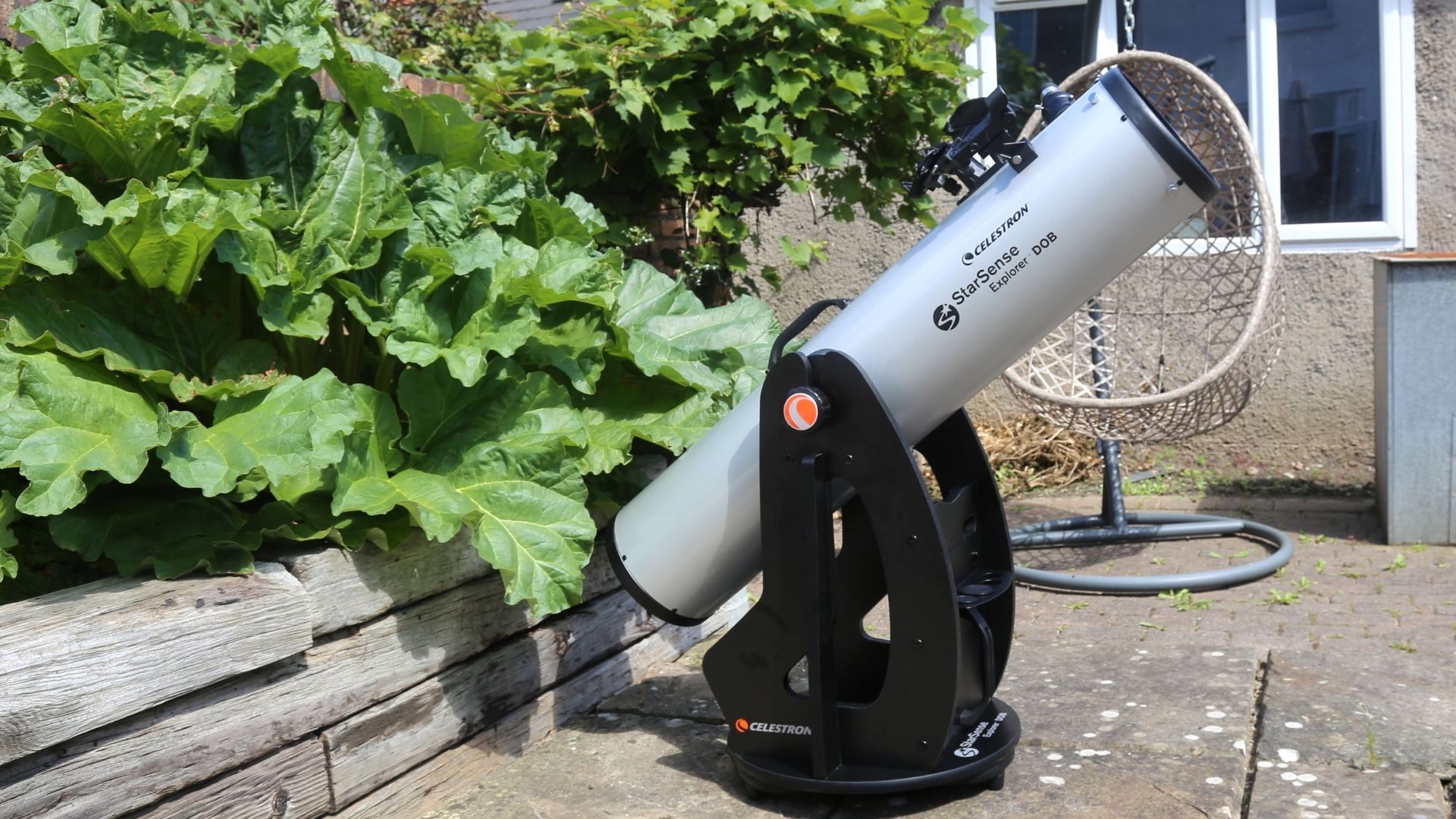

Specifications
Reasons to buy
Reasons to avoid
A quick look at the Celestron StarSense Explorer 8-inch Dobsonian's specs should be enough to put off inexperienced astronomers; its 8-inches/203 mm aperture is the sort of thing you'd only go for after a few years of studying the night sky, and the fact that it's manually operated should mean that it's a nightmare to operate. But no, we're here to tell you that this is a staggeringly good telescope for beginners and, indeed, anyone who wants an amazingly sharp view of the night sky without paying an arm and a leg for the privilege.
Its Dobsonian design (see our explainer of the different telescope types for an explanation) delivers a lot of light in a reasonably compact package, but what really changes everything is Celestron's fantastic StarSense app, which brings your phone into play and makes it astonishingly easy for even a fresh-faced newbie to find celestial bodies. It's not exactly cheap, but you get stacks of performance for your money, and the views you'll get from this telescope are incredible.
Read our full Celestron StarSense Explorer 8" Dobsonian Telescope review.
Best premium
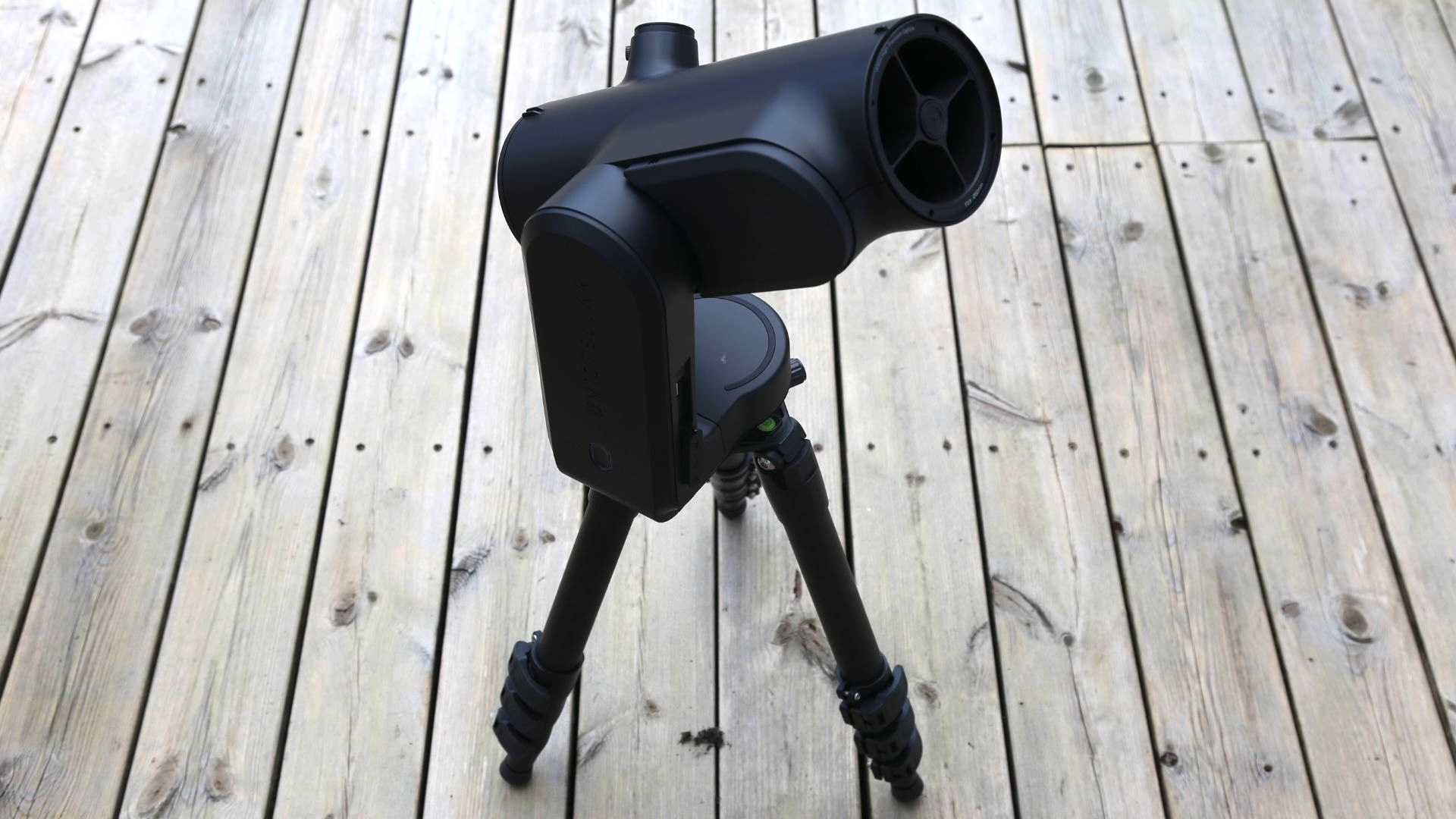
Specifications
Reasons to buy
Reasons to avoid
The Unistellar Odyssey Pro smart telescope has truly impressed us with its user-friendly design and remarkable performance in astrophotography. From the moment we set it up, we appreciated the solid build quality and the ease with which we could start capturing stunning images of celestial bodies. The app is particularly intuitive, guiding us through the process and compensating for light pollution, which is a significant advantage for urban stargazers.
We were able to capture detailed views of the sun, moon, and deep-sky objects, bringing the wonders of the universe closer than ever. The telescope’s portability was another highlight, allowing us to take it to different locations with ease. However, we did notice some limitations.
The battery life, which lasts about five hours, could be more generous, especially for long sessions. Also, while deep-sky images were impressive, planetary details fell short of our expectations compared to other specialised telescopes.
That said, the Odyssey Pro is a fantastic choice for both beginners and experienced users who want to explore the night sky with minimal hassle. Its combination of portability, ease of use, and image quality make it a top contender in the smart telescope market.
Read our full Unistellar Odyssey Pro review.
Best mid-range
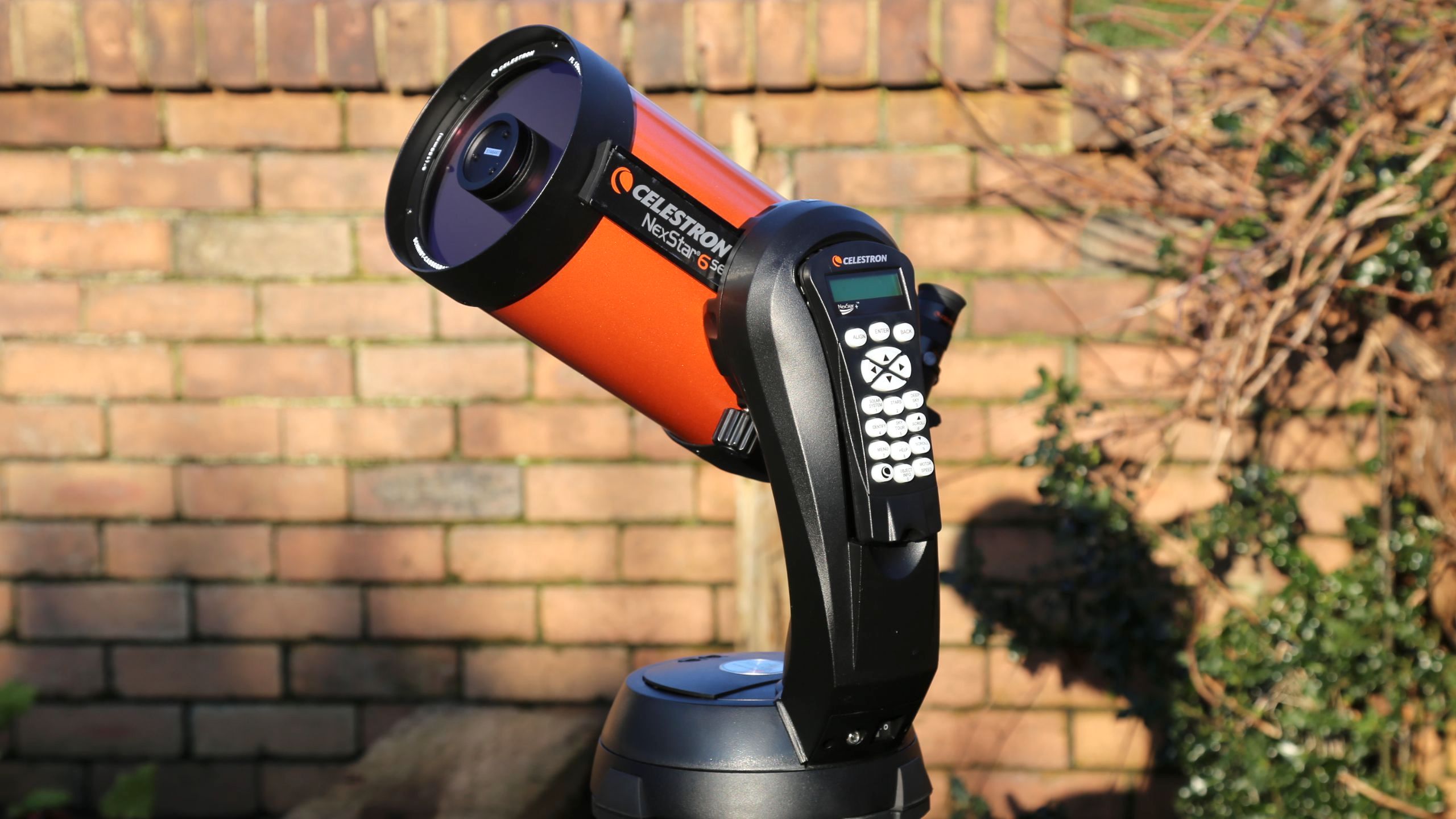
Specifications
Reasons to buy
Reasons to avoid
Much more accessible to hobbyist galaxy gazers, the iconic Celestron NexStar 6SE telescope is perfect for amateur astronomers looking for higher magnifications and sharper, more refined views of both the deep sky and objects in our own solar system. A Schmidt-Cassegrain design, it’s a bit of a heavyweight in more ways than one.
They may not be marketed as such, but most of the best telescopes for beginners are good for looking at either planets or deep sky objects – rarely both. The Celestron NexStar 6SE is an exception, with the step-up in price coming with a huge advance in image quality. Its 6-inch aperture gives it high usable magnification on planets and the Moon and on distant star clusters, galaxies and nebulae.
It’s as close to a genuine allrounder as you’ll get, but the Celestron NexStar 6SE is nevertheless beginning to show its age. The NexStar+ hand controller is beginning to look a bit old-fashioned and clunky compared to how more modern ‘smart’ telescopes work. For now, it’s a classic telescope worthy of investing in, but it won’t be too long before its high price will be difficult to justify when there are even easier-to-use alternatives to choose from.
Read our full Celestron NexStar 6SE review.
Best app-controlled
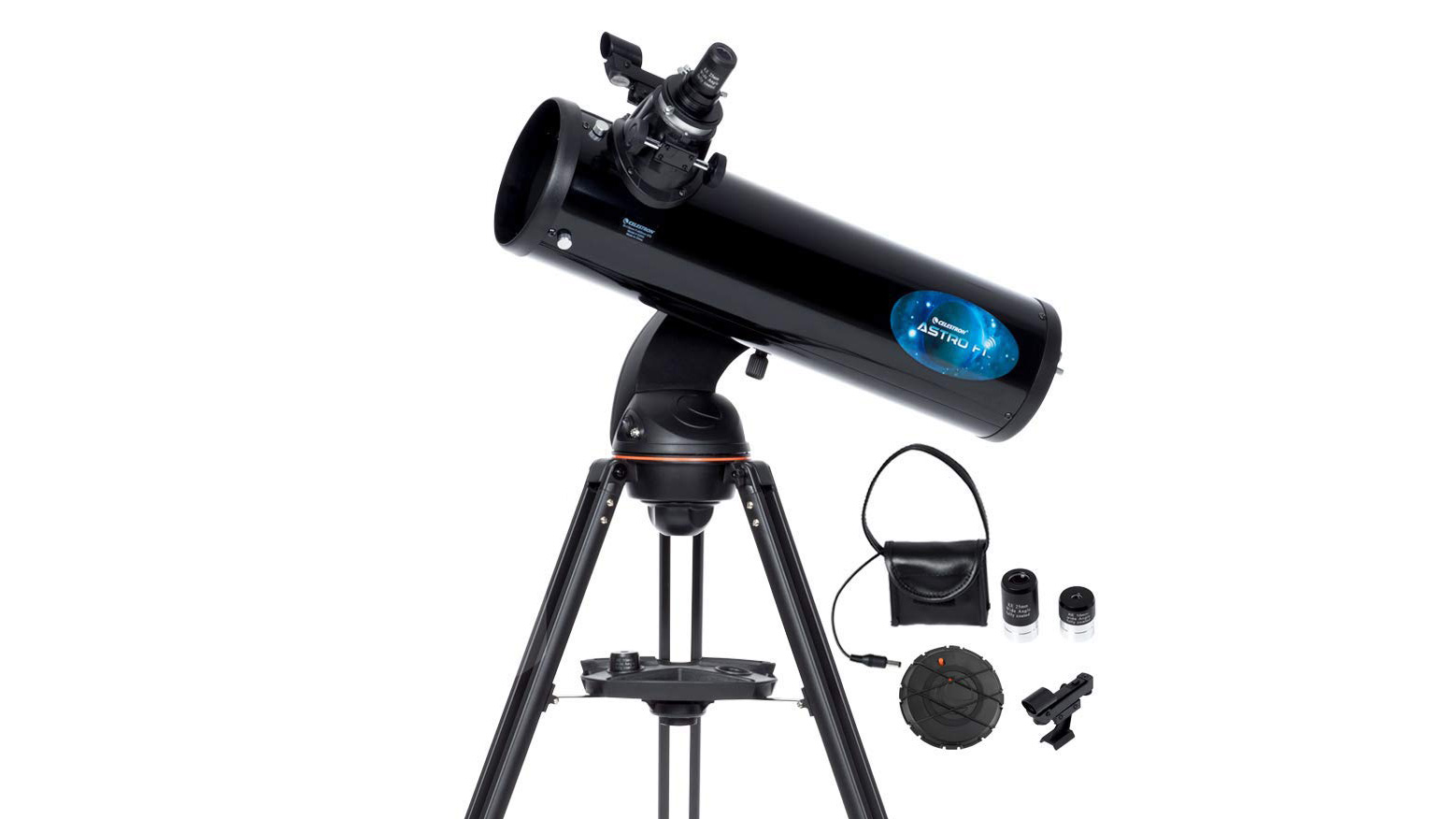

5. Celestron 22203 AstroFi 130 Wireless
Our expert review:
Specifications
Reasons to buy
Reasons to avoid
For a high tech stargazing solution that won't cost you an absolute fortune, we'd point you at the Celestron 22203 AstroFi 130 Wireless Reflecting Telescope. This scope comes with integrated Wi-Fi and is designed to be controlled with a phone or tablet, via Celestron's free SkyPortal app. Although a few reviewers have found the Wi-Fi a little temperamental, generally this succeeds in its task of making it super-easy to find the heavenly bodies you're looking for.
Aiming to provide clear views of the Moon and the planets beyond, the Celestron 22203 AstroFi features a large 130mm lens and a field of view that's wide enough to take in even the largest deep-sky objects. Additionally, it helpfully comes supplied with an accessory tray for stashing your biscuits in, and more importantly two 1.25-inch eyepieces. Slightly annoyingly, this telescope cannot be removed from tripod, should you want to use it as a desktop device.
A rubber-lined area is designed to hold miscellaneous accessories including your smartphone or small tablet, presumably having first downloaded the app, which replaces the need for a remote control handset, thus streamlining the whole operation. The user holds their smart device up to the night sky and, upon locating an object they want to view, it's simply a case of tapping the screen, whereby the telescope automatically zeroes in on the object and the screen displays information about it. You can even generate a 'sky tour' of the best celestial objects to view, based on time and location. Clever stuff.
Not quite right for you? Check out our Orion SkyView Pro 8 GoTo vs Celestron Nexstar 8SE showdown for two more top-end options.
Best budget
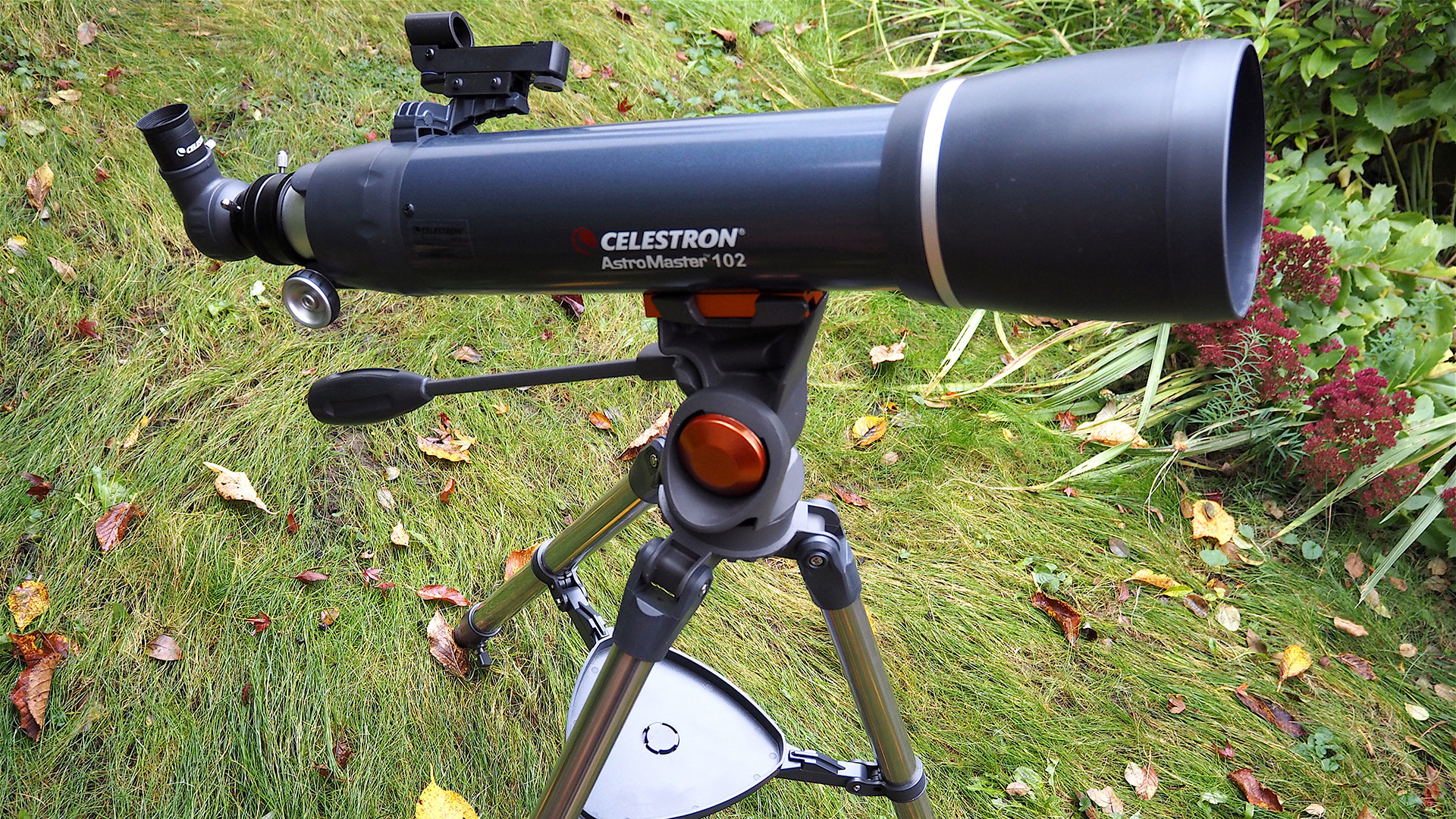

Specifications
Reasons to buy
Reasons to avoid
If you're just getting started with stargazing, the Celestron AstroMaster 102AZ is an affordable scope that packs enough features to keep you going as your experience and skills grow. In our Celestron AstroMaster 102AZ review, our tester was very impressed with the viewing possibilities this telescope affords – the enormous 102mm objective lens combined with an impressive 606mm focal length deliver detailed, ultra-bright views of the Moon, but also the visual clout to see Saturn's rings and Jupiter's moons (although our tester noted that for more deep-space viewing, they would prefer a higher specced option still). The altazimuth mount and pan handle setup are ideal for finding objects in the night sky, but it can also be used to look at Earth-based objects if you prefer.
The bundle includes a steel tripod, accessory tray and manual, alongside 10mm and 20mm eyepieces, a red dot finder scope and Starry Night astronomy software, making for a sound starter package. It's also pretty simple to set up from scratch without the need for tools, bar a Philips screwdriver. On the downside, this AstroMaster is a bit of a beast, weighing in at 6.4kg and sporting a large footprint that means you'll need to have a bit of space at your disposal.
Not right for you? We compare two alternative beginners' telescopes in our Celestron 21039 PowerSeeker 50AZ vs National Geographic Refractor 60/700 AZ showdown.
Best for sharpness
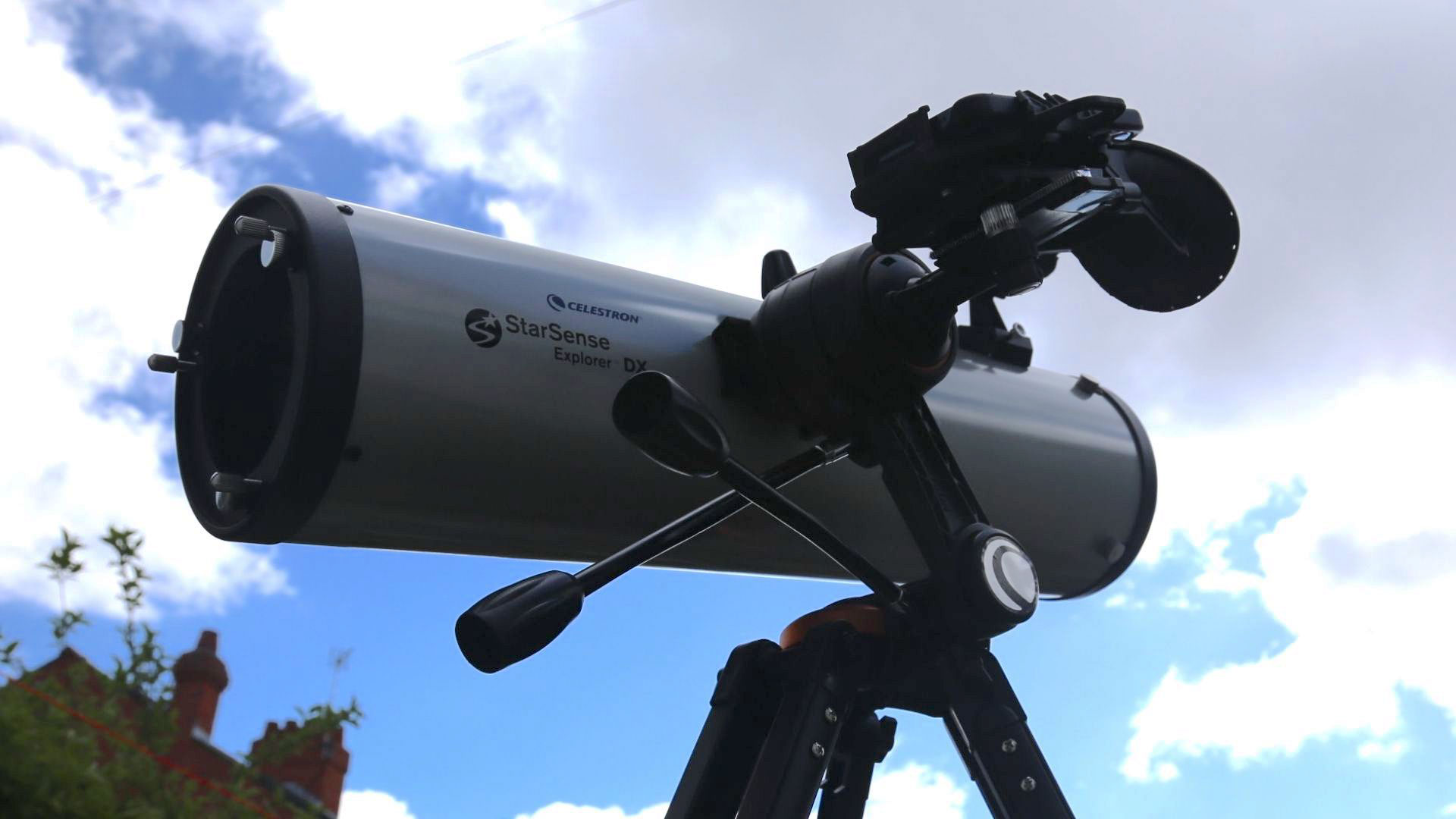

Specifications
Reasons to buy
Reasons to avoid
While the Celestron StarSense Explorer DX 130AZ is very much a beginner's telescope, it's one that requires a little more effort than the average starter scope to get results, and when you do they're totally worth it. While this telescope comes with a companion app to help you find what you're looking for, it won't automatically point at them for you; this is a completely manual telescope that you'll need to point in the right direction yourself using its manual alt-azimuth mount, guided by helpful arrows in the app, and you'll need to keep adjusting it so that objects stay in view.
This might prove challenging to newcomers (especially considering that its Newtonian reflector shows you everything upside-down), but once you're focused and looking the right way, the results are impressive. Even with its basic eyepieces you'll get sharp, colourful results, and if you like what you see you'll do even better with upgrade eyepieces or a Barlow lens. If you're into stargazing for the long haul, this is a scope that'll teach you skills that a more automated scope won't; find out more in our Celestron StarSense Explorer DX 130AZ telescope review.
Best high-tech
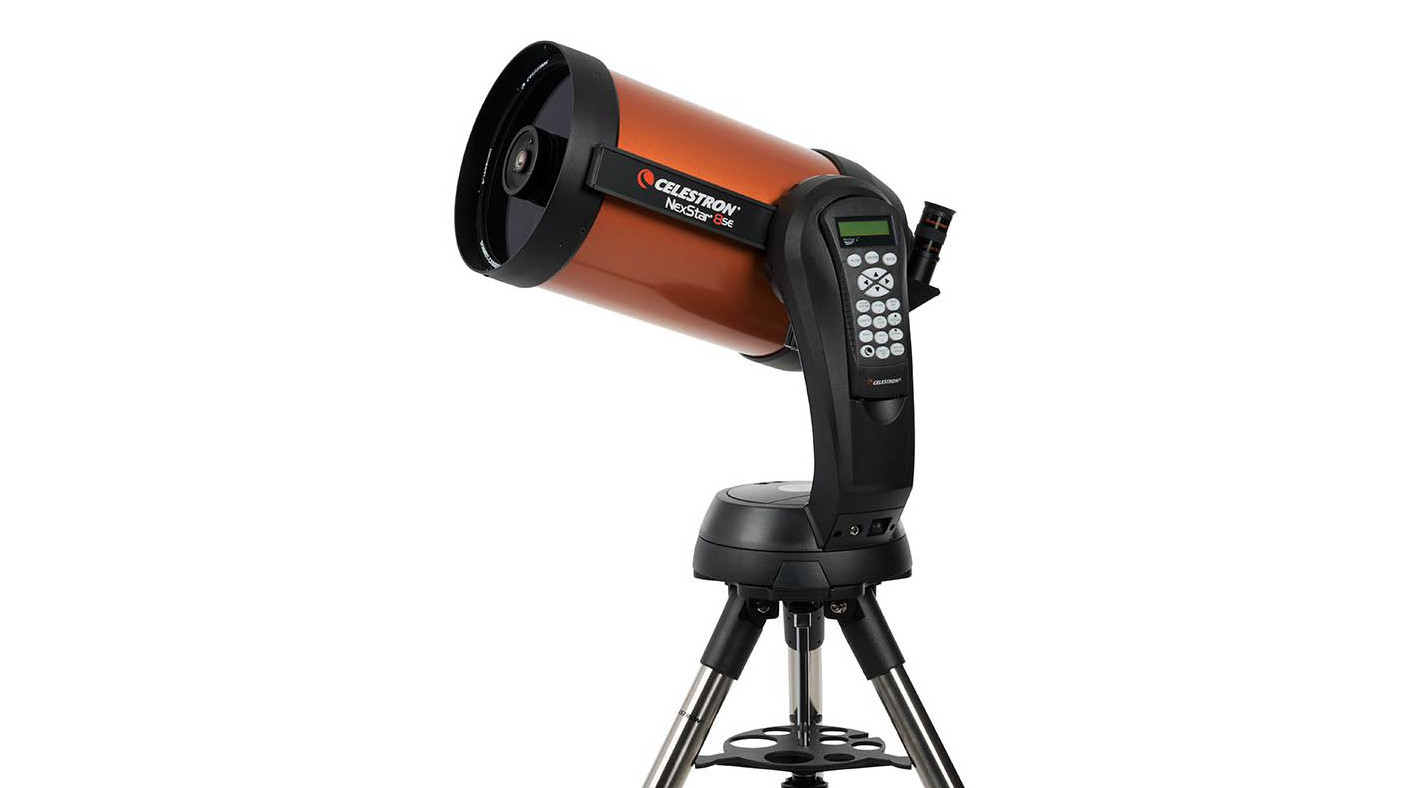

8. Celestron Nexstar 8SE Compound Telescope
Specifications
Reasons to buy
Reasons to avoid
The Nexstar 8SE is one of Celestron’s high-end computerised devices, which means it does the hard work for you. After a 5-minute set up each session, you can type a target into the side-mounted keypad, and the Nexstar will find it for you from a library of more than 40,000 celestial objects (if you want to be able to search for objects on your smartphone rather than having to remember their names, you can upgrade with Celestron's Skyportal WiFi module). For those new to astronomy, it provides a really quick and easy way to start finding your way around the night sky.
There's a large 8-inch aperture and good light-gathering ability, delivering a clear view of many deep-space objects. It's not the most compact telescope on the market, but does pack down to a reasonable size – and there are smaller 6-inch and 4-inch models of this same telescope (with a smaller price tag to match), if you're really wanting to slim down.
The supplied tripod is fairly sturdy, and for short viewing sessions, some reviewers note that it can also just be used on a tabletop without the tripod. One potential annoyance to be aware of for more advanced users is that while you can rotate it vertically manually, you can't pan it left and right without using the motor and keypad. However, there's still plenty to recommend this impressive high-tech telescope.
Best for hobbyists
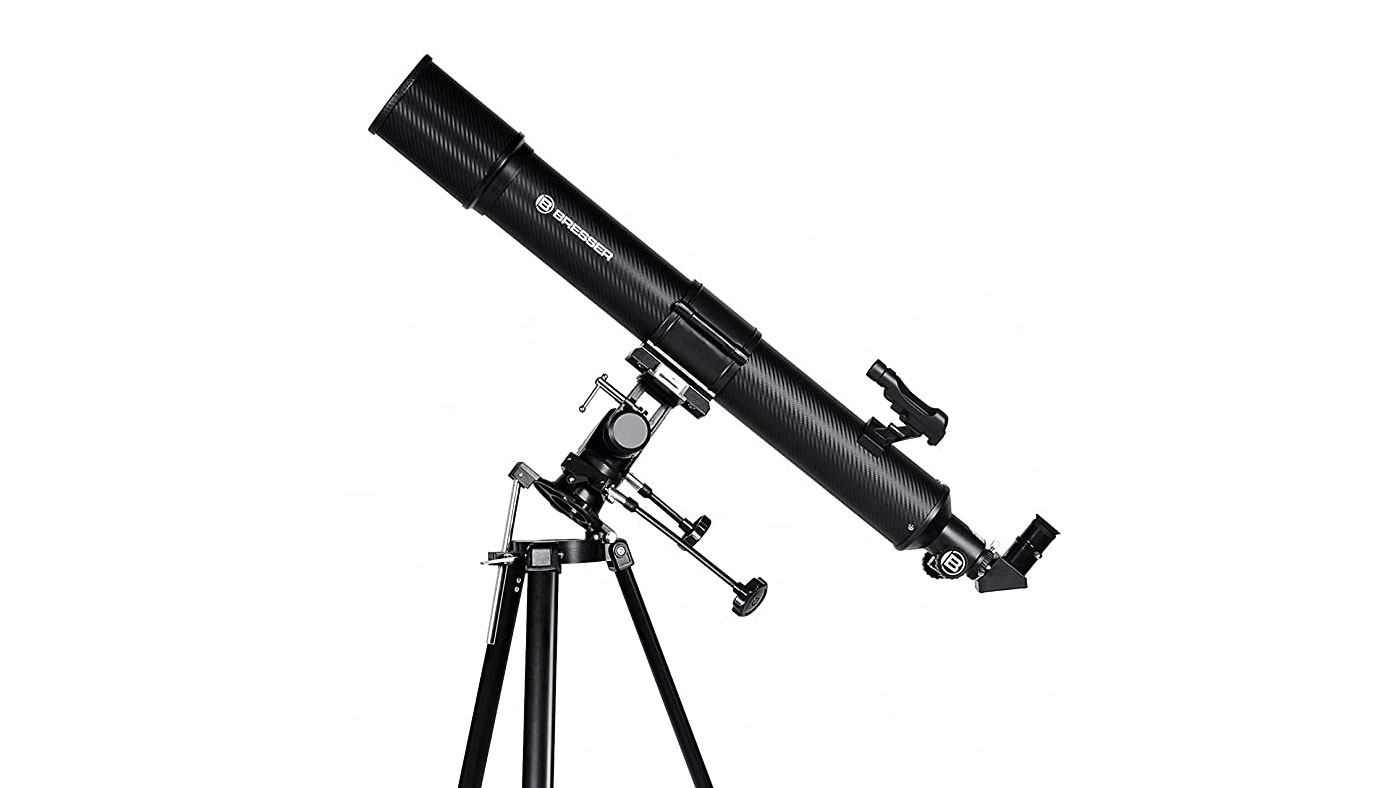

9. Bresser Taurus 90 NG telescope
Specifications
Reasons to buy
Reasons to avoid
Aimed at both beginners and hobbyists, the Bresser Taurus 90 NG is an aluminium telescope that offers an enticing combination of performance and value for money. With a 900mm focal length and 90mm objective lens, it's ideal for getting a close look at the Moon and planets, and with a full aperture solar filter you can see the surface of the Sun in impressive detail.
It's also perfect for taking photos, thanks to its included smartphone mount. Two eyepieces – a 20mm and 4mm – are included, and thanks to a supplied Barlow lens that increases the magnification of each eyepiece by a factor of three, maximum magnification is the equivalent of a whopping 675x. Thankfully, a tripod is supplied as standard. A mirror type set up provides an upright image.
While the above all sounds great, one downside is that despite its aluminium construction, the Bresser Taurus 90 NG's combined weight is a hefty 7.5kg. Still, the fact that the set up can be used in altazimuth mode for terrestrial observations, and then in equatorial mode for astrological use provides a degree of versatility lacking in other options in our best telescope list.
Reviewer panel

Matt is an outdoor expert responsible for curating this guide. He works closely with numerous telescope experts to ensure T3's telescope guide only features the best models currently available.

Jamie is an award-winning journalist, author, tour leader (solar eclipses, Northern Lights and stargazing) and a Member of the Association of British Science Writers. He's a telescope expert and reviewed many of the models featured in this guide.

Gavin is a seasoned writer who's an expert in a number of specialist subjects, including binoculars and monoculars, spotting scopes, microscopes, trail cameras, action cameras, body cameras, filters, cameras straps and more.
How to choose the best telescope for you
Trying to find the best telescope can feel a little daunting. With so many options to choose from and all the extras and accessories that go with them, it's all too easy to feel paralysed by choice. You'll find a more in-depth break-down of what to look for in our guide to how to choose your first telescope, but broadly, you want to ask yourself three key questions to quickly narrow down the options:
What do you want to be able to see?
The relevant spec is focal length because this dictates how far into space the telescope can reach. Roughly, shorter focal lengths are fine for observing the moon, but you'll need a greater focal length if you want to get into deep space. However, you should also factor in extra magnification provided by the eyepieces. Pricier telescopes will come with interchangeable eyepieces offering different magnification factors. These can be used to increase the distances your telescope can reach.
How much do you want to spend? and How much room do you have?
These are self-explanatory – shop within your assigned budget and check out the size to make sure you have space to store your scope. On that final point, you'll also want to factor in where you'll use your telescope. Most telescopes will need to be used outside – you won't get a great view if you just point one out of your window because light pollution (and even the heat from your home) will affect your view. So bear that in mind when considering portability and ease of set-up. Also, consider if you'll want to be able to attach a stills or video camera to be able to record what you see as you see it.
There are three types of telescopes: reflectors, refractors, and catadioptric or compound telescopes. They each have a different kind of lens set-up, which means they provide different results. Perhaps the most common type for astronomical telescopes is the refractor, but typically, the alternative of the reflecting telescope allows for larger apertures – and, therefore, a greater amount of light to be collected, translating as a brighter image. The rough rule of thumb when it comes to optics is brighter is always better. If you're brand new to stargazing, you might also want to check out our guides on how to set up a telescope.
How we test the best telescopes
Wherever possible, our stargazing specialists have called in samples of these telescopes and spent time putting them through their paces at home. In these cases, we've also put together full-length reviews that dig into how the product performed in more detail. These are linked to in the blurb of the product. We consider things like the features on offer, how easy it is to set up, the handling and operation. We'll also compare it to other similarly-priced and similarly specced alternatives on the market, to see if it's the strongest recommendation in that particular area.
Where we haven't been able to get our hands on a test sample to try out, we make an informed decision based on the specs offered for the price, our experience with that brand, and other customer reviews available.
For our best telescope ranking, we've focused on offering a range of options for different priorities and at different price points. You won't find a list of just the highest-specced and priciest models, but a variety of different kinds of telescope to suit different people.
FAQ
What magnification telescope is best for stargazing?
The best magnification for stargazing with a telescope depends on various factors such as the telescope's aperture size, atmospheric conditions, and the objects you want to observe. Generally, for beginners, a magnification range of 20x to 50x per inch of aperture is recommended to provide clear and detailed views of celestial objects without sacrificing brightness or field of view. However, it's essential to balance magnification with aperture size to avoid diminishing image quality.
What size telescope is good for stargazing?
The size of a telescope that is good for stargazing depends on various factors, including your observing goals, budget, and portability preferences.
In general, larger aperture telescopes (with larger primary mirrors or lenses) gather more light and provide better views of fainter celestial objects and more detail on planets and deep-sky objects. However, they can be heavier and less portable.
For casual stargazing and beginner astronomers, a telescope with an aperture of 70mm to 114mm (2.8 to 4.5 inches) can provide satisfying views of the Moon, planets, and some brighter deep-sky objects like star clusters and nebulae.
Intermediate astronomers may opt for telescopes with apertures ranging from 114mm to 203mm (4.5 to 8 inches) to explore a wider range of celestial objects with better detail and clarity.
Advanced astronomers or those interested in astrophotography often choose telescopes with larger apertures (8 inches and above) for capturing more detailed images of faint objects and for advanced observing sessions.
Ultimately, the best size telescope for stargazing depends on your personal preferences, observing location, and intended use.
Sign up to the T3 newsletter for smarter living straight to your inbox
Get all the latest news, reviews, deals and buying guides on gorgeous tech, home and active products from the T3 experts

Matt Kollat is a journalist and content creator who works for T3.com and its magazine counterpart as an Active Editor. His areas of expertise include wearables, drones, fitness equipment, nutrition and outdoor gear. He joined T3 in 2019. His byline appears in several publications, including Techradar and Fit&Well, and more. Matt also collaborated with other content creators (e.g. Garage Gym Reviews) and judged many awards, such as the European Specialist Sports Nutrition Alliance's ESSNawards. When he isn't working out, running or cycling, you'll find him roaming the countryside and trying out new podcasting and content creation equipment.
-
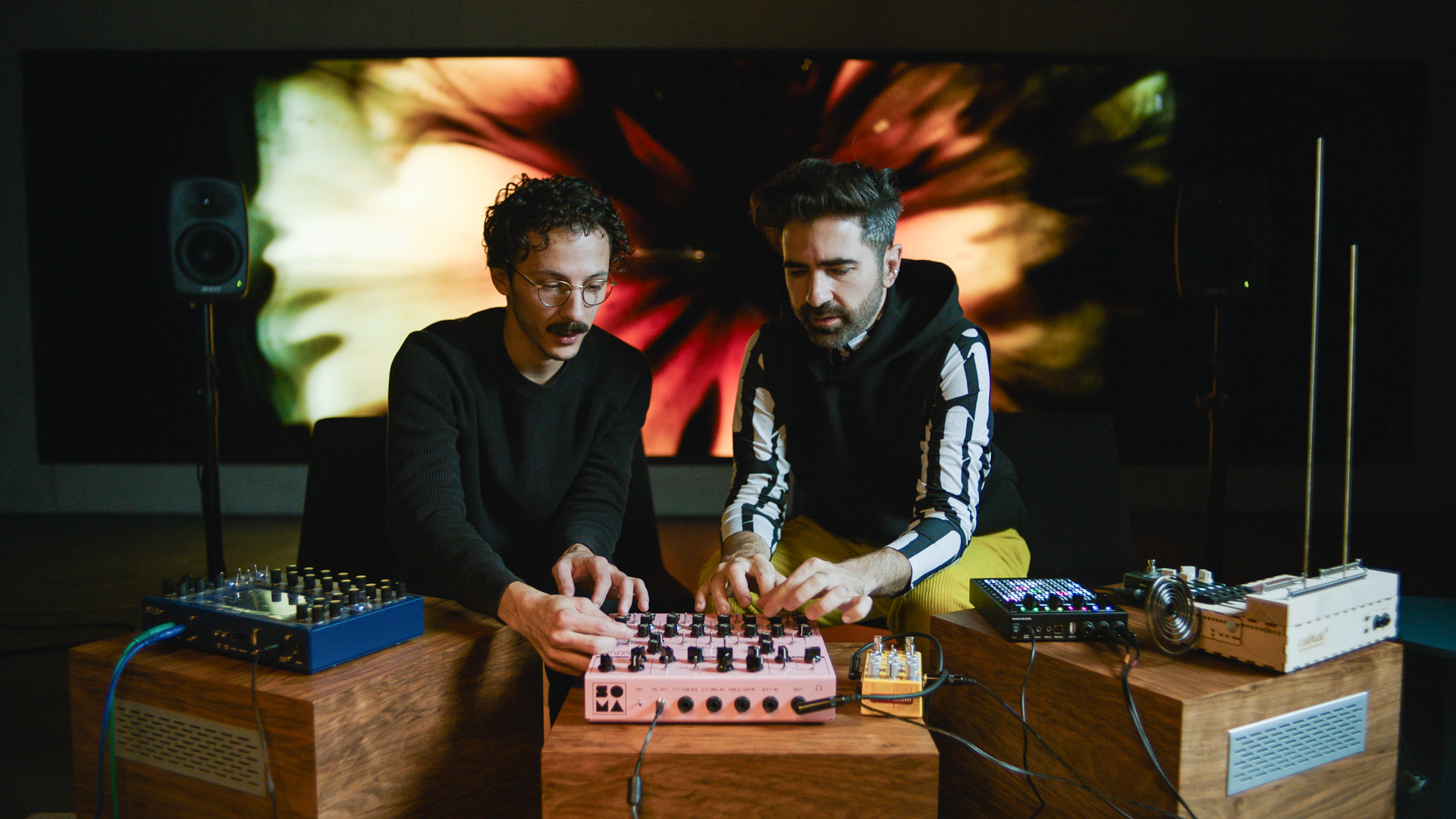 This is the sound of BMW's upcoming Neue Klasse EVs
This is the sound of BMW's upcoming Neue Klasse EVsHas BMW cracked the problem of making EVs sound fun with its next-gen soundscape for its Neue Klasse cars
By Alistair Charlton
-
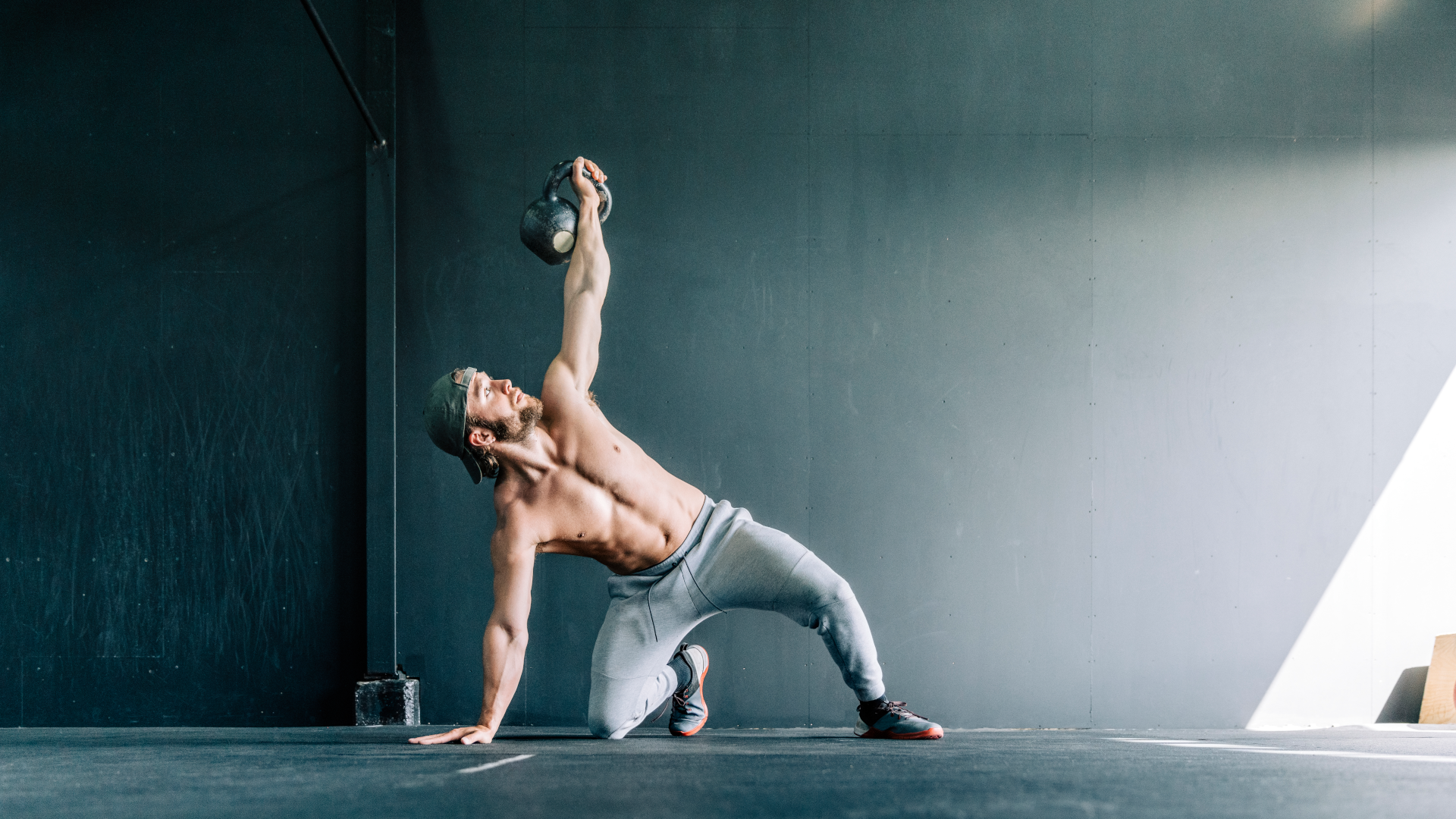 Build unshakeable core strength with a kettlebell and these three exercises
Build unshakeable core strength with a kettlebell and these three exercisesAdd this to the end of your workout to fire up your midsection muscles
By Bryony Firth-Bernard
-
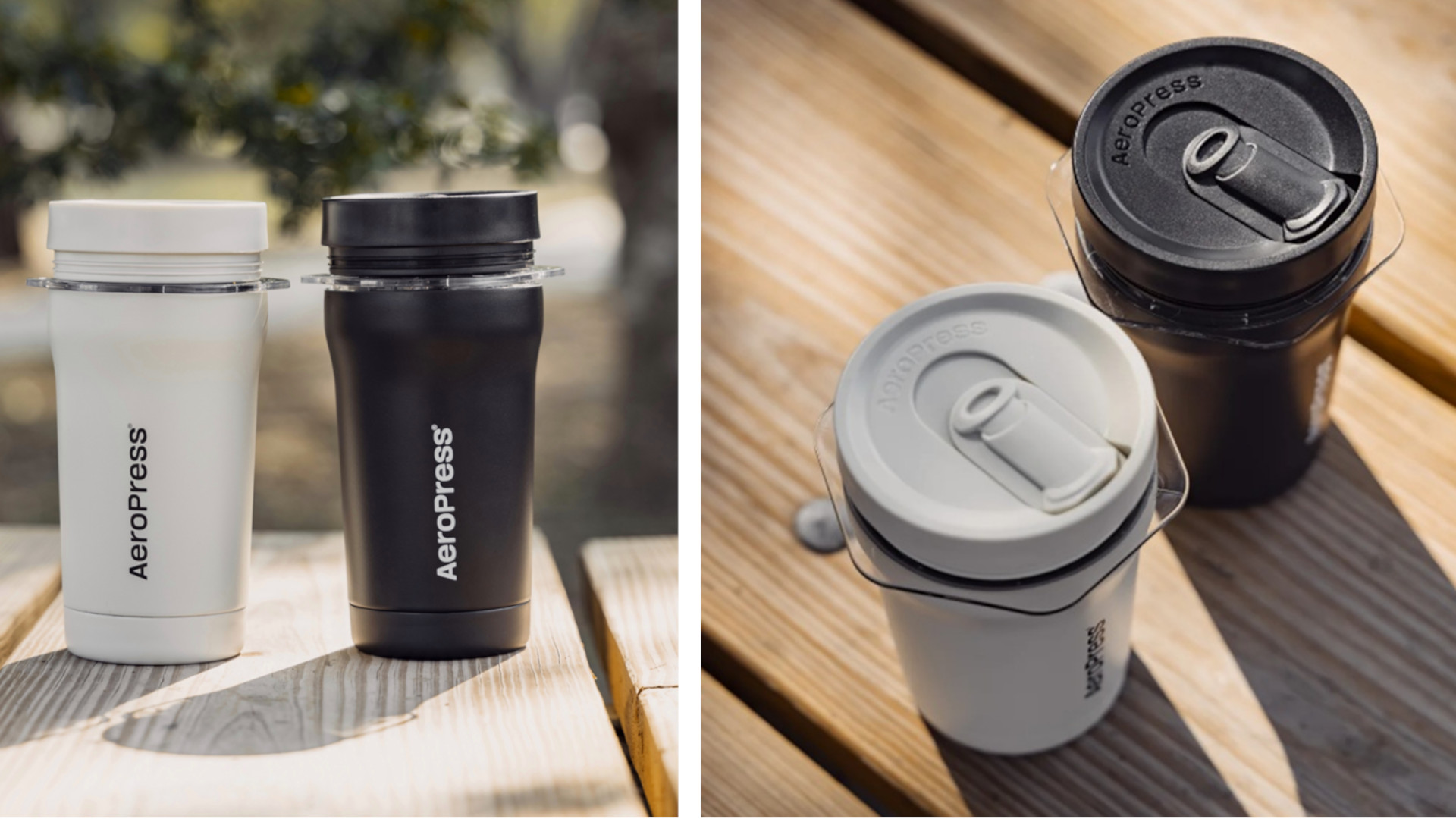 The AeroPress Go Plus is the gadget I need for my next outdoor adventure
The AeroPress Go Plus is the gadget I need for my next outdoor adventureWhether you’re off camping or heading on a hike, the new AeroPress Go Plus lets you enjoy great coffee on the go
By Bryony Firth-Bernard
-
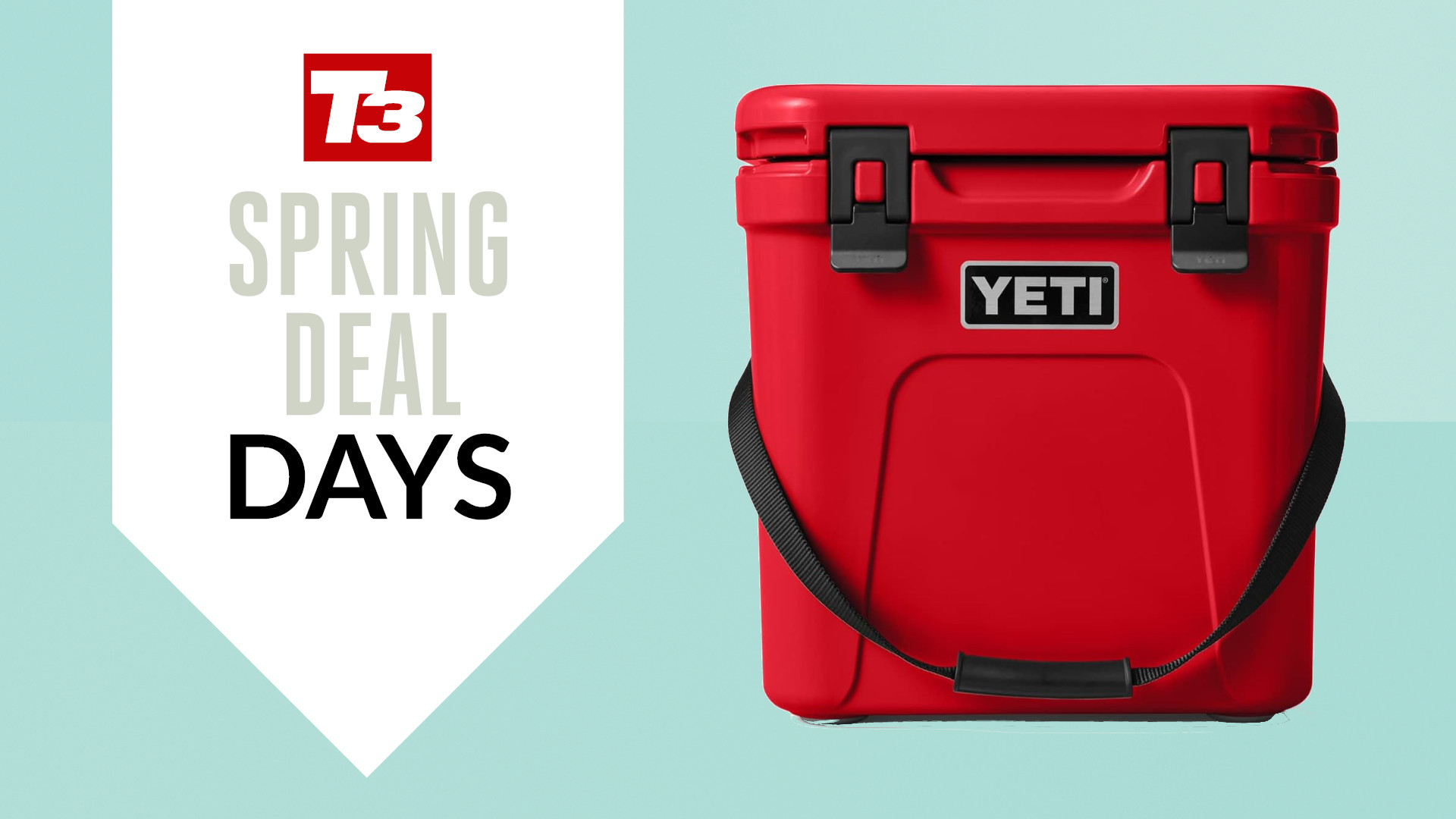 YETI has discounted a ton of its best-selling coolers and tumblers in Amazon’s Big Spring Sale
YETI has discounted a ton of its best-selling coolers and tumblers in Amazon’s Big Spring SaleJust in time for the warmer months
By Bryony Firth-Bernard
-
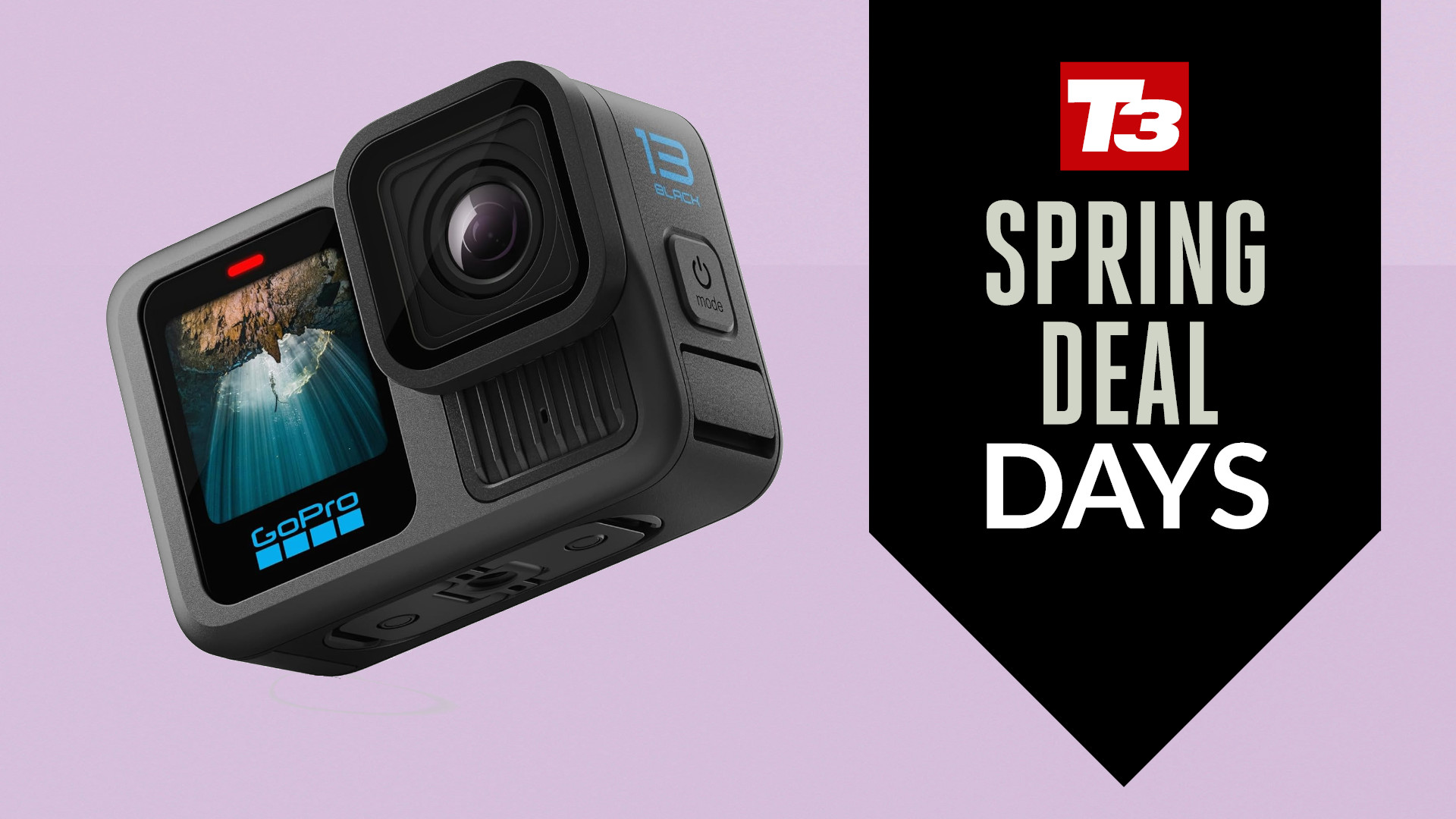 GoPro's latest flagship action cam just got a major price cut in Amazon's spring sale deal
GoPro's latest flagship action cam just got a major price cut in Amazon's spring sale dealYou can pick up the Hero 13 Black with almost 20% off
By Lee Bell
-
 How to pack your rucksack for a hiking or camping trip
How to pack your rucksack for a hiking or camping tripPack properly, save space and get easier access to the items you need the most
By Bryony Firth-Bernard
-
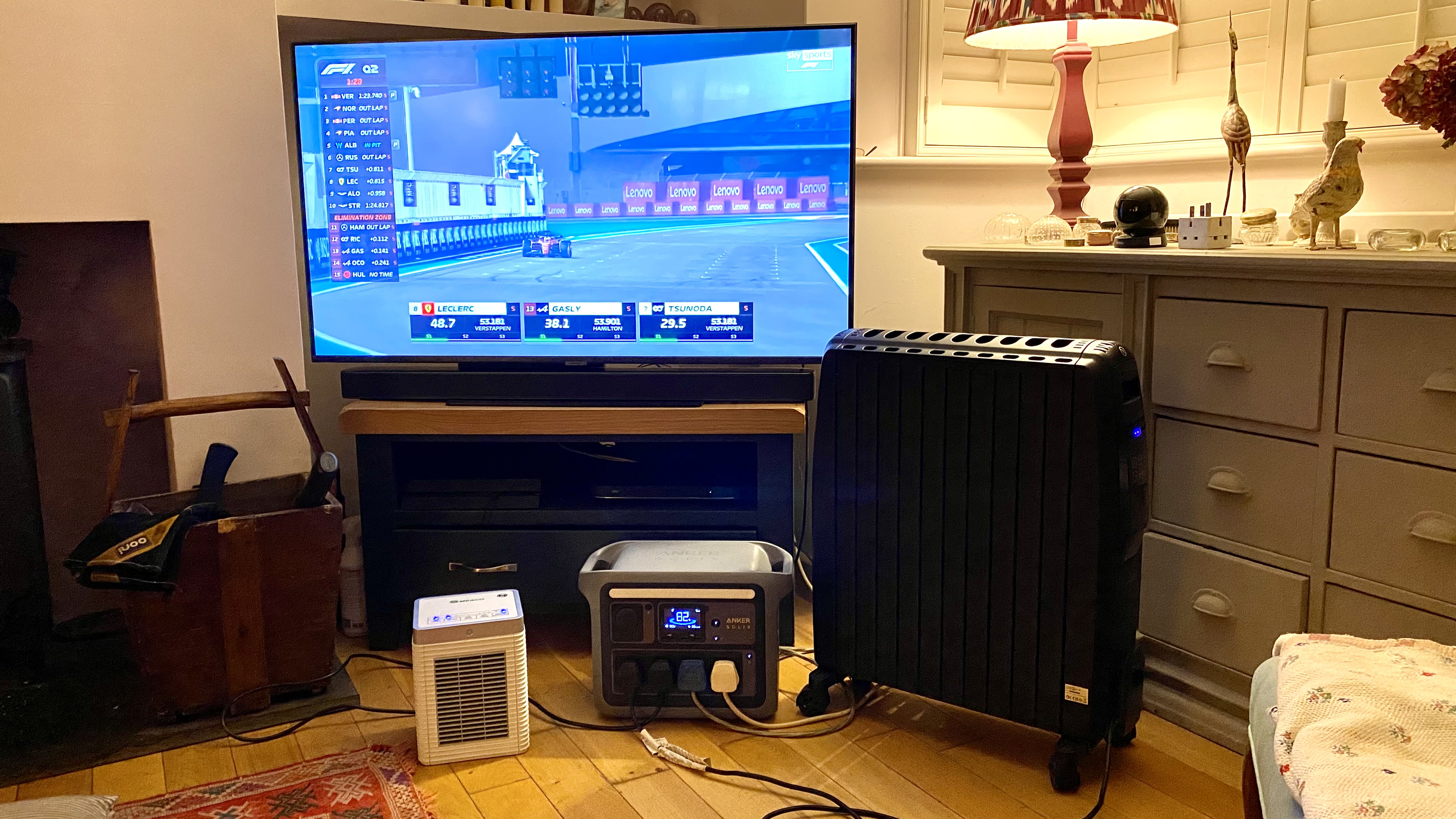 Change my mind: the smaller, the better with portable power stations
Change my mind: the smaller, the better with portable power stationsPut your portable power station to work when you’re not using it
By Derek Adams
-
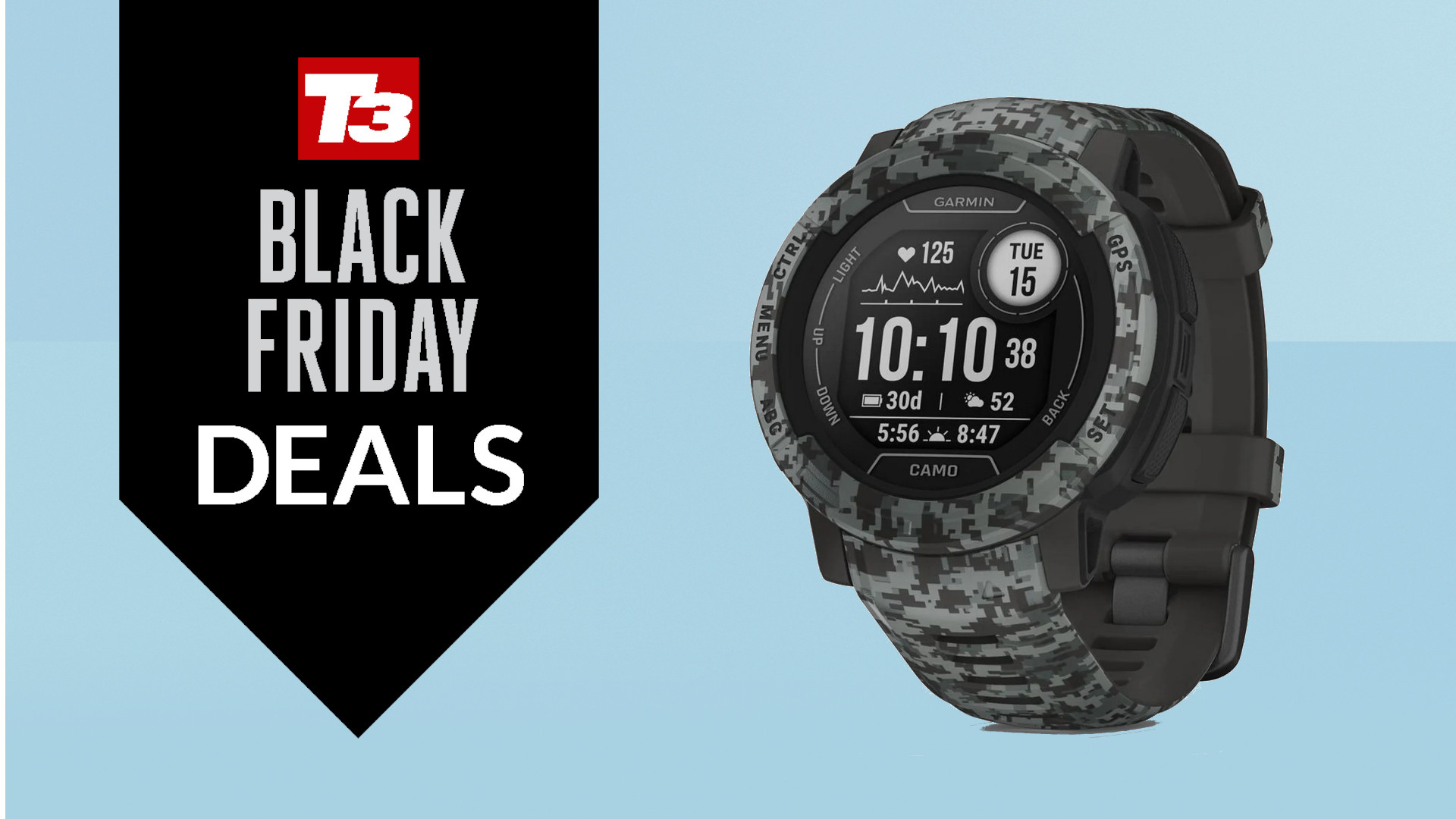 This rugged adventure Garmin is mega cheap in Walmart’s Black Friday sale
This rugged adventure Garmin is mega cheap in Walmart’s Black Friday saleThe Instinct 2 is a top watch for outdoor and sport enthusiasts
By Bryony Firth-Bernard
-
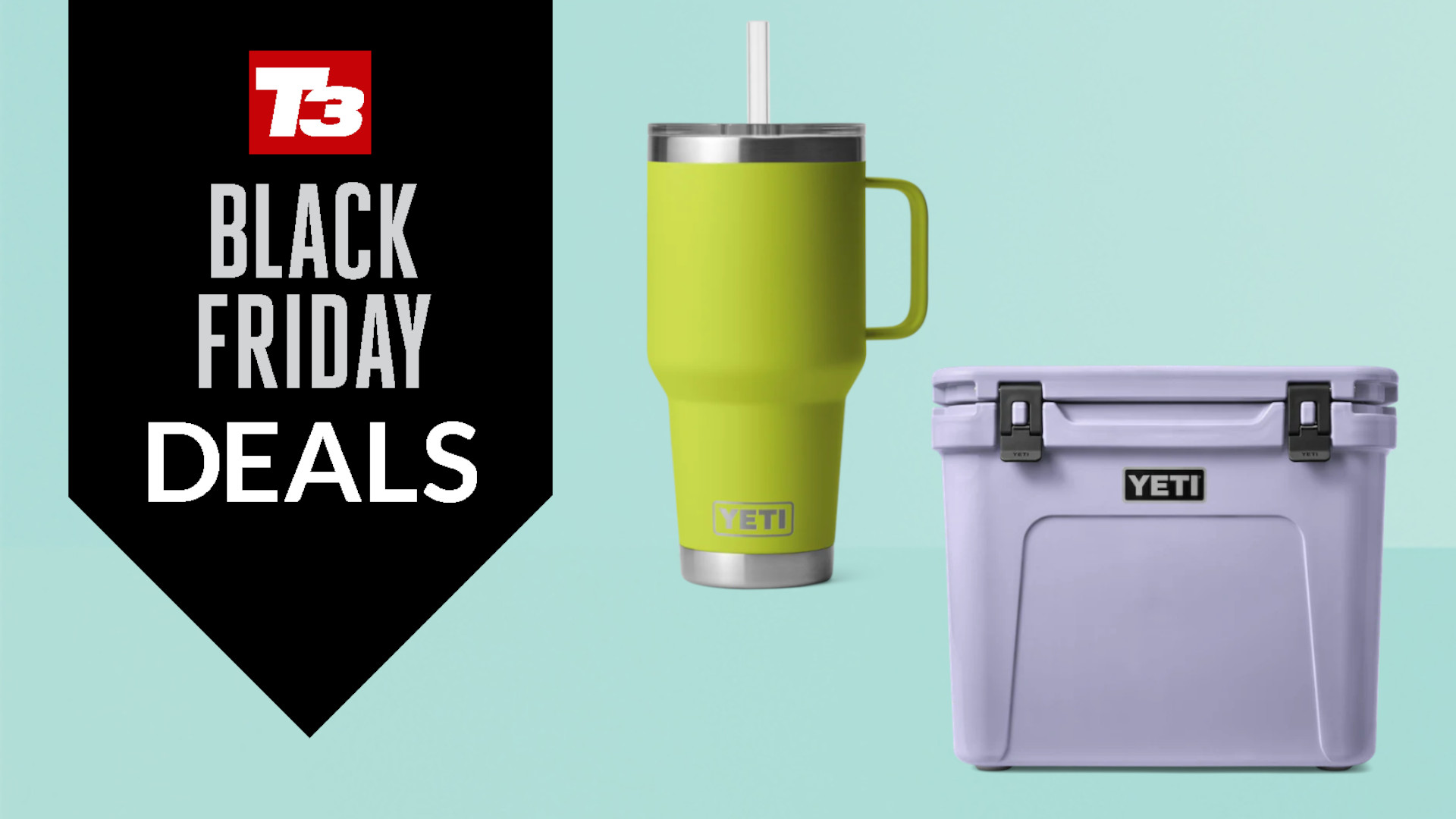 YETI’s best-selling products are ridiculously cheap in Amazon’s Black Friday sale
YETI’s best-selling products are ridiculously cheap in Amazon’s Black Friday saleFancy yourself a tumbler, rambler or cooler? Amazon's reduced them all
By Bryony Firth-Bernard
-
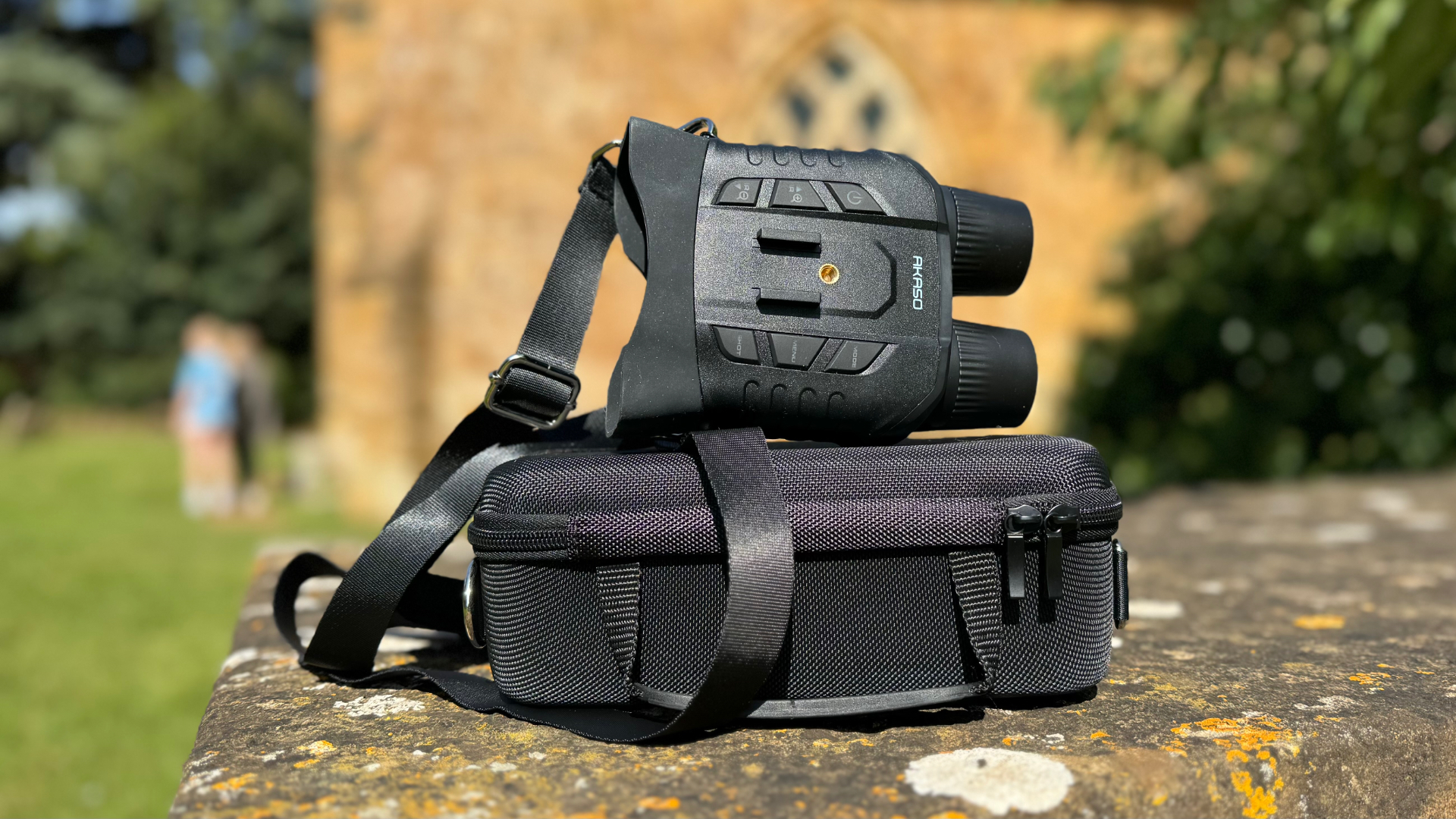 AKASO Seemor 200 night vision goggles review: unparalleled clarity for nighttime adventures
AKASO Seemor 200 night vision goggles review: unparalleled clarity for nighttime adventuresAKASO’s new NVD unlocks the night with cutting-edge colour vision technology
By Derek Adams